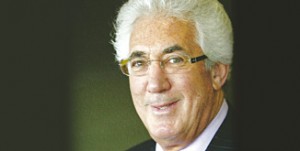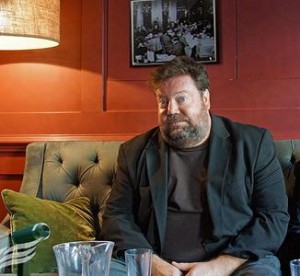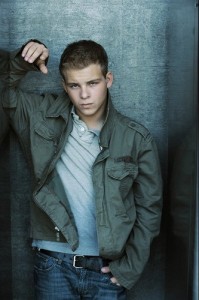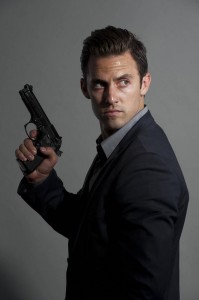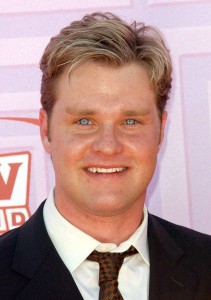Paris Themmen played Mike TeeVee in 1971’s “Willy Wonka and the Chocolate Factory”. Paris took time out on his birthday to talk to OnlineCasinosSpelen and discuss how it was working on the film, what he has done since and how he is hoping for a 40th anniversary cast reunion.
Click here to purchase “Willy Wonka” merchandise
Mike Gencarelli: How did you originally get the role of Mike TeeVee in “Willy Wonka”?
Paris Themmen: I started acting when I was six. My mother brought me into an agent and I went up for a commercial. The first commercial I ever went up for was for Jiff Peanut Butter where I had to sit on top of a mountain of peanuts. Of course it was just an angled chicken wire creation. I hooked the first commercial I went up for and then the second commercial was for a product called “Crazy Bubbles.” I was the only six year old who could say “Crazy Bubbles Bubble Blowing Bubble Bath.” I could say it three times fast so they hired me. In those days there weren’t many child actors in New York. So I kept doing commercials. Eventually I booked a Broadway show called “Mame” with Ann Miller as Auntie Mame. So I was doing a lot of commercials and theater in New York…I did Circle in the Square…and when I was around eleven years old I auditioned for the film. As I recall there was at least one call back…not a lot. As I said, there weren’t really a million child actors in New York…maybe me and a few others. I had a call back and I remember being in a phone booth with my mother and getting the news and both of us being very excited that we were both going to go to Munich, Germany to film the movie.
Mike Gencarelli: What was your most memorable moment on the set of “Willy Wonka”
Paris Themmen: My most fondest memory was the chocolate room. Unlike Julie who didn’t like it because, strangely, she doesn’t like chocolate, I loved the Pure Imagination room. As you may have heard elsewhere, the reaction shot that they took of us from the top of the stairs was a true reaction shot. It was a closed set and we had never seen the room before. So when they opened the doors…unlike today where they digitize things or build them in portions…it was all laid out for us. We were probably 30 or 40 feet above it looking down at the whole room…the river flowing, the waterfall flowing, the boat moving. I think that was the first day we saw the Oompa Loompas. It was such an amazing feeling to be looking down at what the crew had been laboring on. To see the fruits of their labors was amazing. That was probably my favorite moment on shooting the film.
Mike Gencarelli: Do you still keep in touch with the cast and crew?
Paris Themmen: Mostly by email, but yes. Here are the people I’ve seen in the last 20 years: I’ve seen each of the four other kids, I’ve seen Diana Sole, who played Charlie’s mom. I’ve seen Rusty Goff, who played the lead Oompa Loompa. I’ve seen Mel Stuart, who directed the film. I’ve seen Frawley Becker, who was the script consultant. I think for people that were directly associated with the movie…that’s it. No wait! I saw Leonard Stone one day. I was doing commercial counseling sessions and he came in as a commercial actor for me. And that’s it. I know a lot of them have passed…like Jack Albertson. Oh, and I did see Gene (Wilder) once. I saw him about a year ago at a Barnes and Noble signing for his book. And the thing about being Gene is…I was eleven, the other kids were thirteen. People ask me who was nice and who was mean. Julie, surprisingly, was a very well mannered, well behaved British young woman. Peter, true to form, was a very gentle and well behaved young man. Michael didn’t speak a lot of English and Denise was a lot like me…sort of a hardened child actor. But I was two years younger…and I was trouble. I was rambunctious and precocious everywhere on the set and Gene remembered this. He tells a story about being asked about a part in the additional footage on the DVD when someone asks “what about me” and he replies “oh, he was definitely a brat.” Then he pauses, looks into the camera and says, “But Paris…You know I love you now,” in a very Gene Wilder sort of way. And another one that I love…Gene was asked what he thought about working with the kids and he said, “four of them are great and one of them I’m going to kill tomorrow!” Wait a minute, my girlfriend is correcting me. He says “Four of them are fantastic, one of them I’m going to shoot in the head tomorrow!” (laughs). So years later I go to this book signing and I say, “Hi Gene, I’m Paris, I played Mike TeeVee” and he says, sure as rain, “Oh…you grew a brat.” So that’s his recollection of me. And I told him that I’d like to think I’ve had time to change and he said, “yes, of course…I’m sure you have.” But like I say I was sorta precocious…much like my character.
MG: After “Willy Wonka”, you didn’t do a lot of other films. Why?
PT: The real question is, “Paris, what have you done since?” There are a couple of answers. One: After the film I went back to Broadway in a play called “The Rothchilds.” I also did the first national tour of the show. I did a couple more commercials. I basically worked from six to sixteen. Then I got my degree in theater at NYU and they didn’t want you to work at that time. They wanted you to be process oriented, not results oriented. So they really didn’t want you to work. Then I got out of college, got distracted and discovered other things. I did a few commercials in my thirties and I was in the background of some films, mostly because I was working in film production. The other side of that question is what have I done NOT as an actor and…that is a lot. I’ve travelled all over the world…I backpacked through sixty different countries on six continents. Particularly in some very exotic locations like Borneo, the Sahara Desert, the Amazon, the Great Pyramids of Egypt, the Taj Mahal. Just try to imagine the cool adventurous things you’d want to do in your life…I’ve done many of them. Swimming with sharks…piranhas. I’ve done some sky diving. I’ve also had some great business experiences…managing money with Smith-Barney…being a real estate broker…film production, like I said. I worked in casting for awhile. I was what they call a Walt Disney Imagineer, during when they were building Euro Disney. I’ve started two or three businesses. So I haven’t been just sitting in my room contemplating my navel. I’ve been out doing things. In terms of major motion pictures that people will remember…that’s it…one film, “Willy Wonka”. One good film.
MG: With next year being the 40th anniversary of the film, how do you feel about its impact over the years?
PT: I agree with you that the film has had a life of its own. And it’s been passed down from parents to children throughout the years. The script that Roald Dahl wrote appeals not only to children but also to adults, with many adult references, so the parents don’t mind watching it with the kids. And they are in fact excited about bestowing it upon their children. And as the film has grown there are very old Wonka fans now and there are very young Wonka fans now. So in terms of my reaction to that I think it’s great. I think it deserves to be where it is. Obviously at the time none of us expected that it would be that way. But watching the film I understand its enduring popularity.
MG: Ok, the dreaded question, have you seen the remake from 2005? Your feelings?
PT: Here’s my experience with the new film…there was a time right after it came out when people would ask me “what do you think of the new film” and I would say, “Oh, I think it’s great!” I don’t remember exactly what I said but I know I was positive. But as the years go by and I speak to fans who tell me that they prefer the old one I feel more and more comfortable expressing my opinion which is that the new one had some things about it that I liked…things like the squirrels. And by that I mean Veruca getting eaten by squirrels, which was true to the book. I liked the pink Seahorse boat. I thought the chocolate looked more authentic in the river then ours. But I thought that there were many ways that they missed in the new one. Chief among them is the relationship between Wonka and Charlie. I felt that, although the new movie is called “Charlie and the Chocolate Factory,” the focus in fact was more on Willy Wonka, while the old movie was called “Willy Wonka and the Chocolate Factory” but the emphasis was more on Charlie. In terms of the relationship with Wonka, I think that one of the key moments in the old film was in the end when Gene says “My boy you’ve won,” and there’s this great moment that happens between him and Charlie. To me that’s the heart of the problem in the center of the film. The choices Johnny Depp made, and far be it from me to judge Johnny Depp…he’s one of our finest actors…created such a neurotic persona so that there was no relationship between Wonka and Charlie. I thought that was the biggest problem.
MG: Do you ever think we will see another cast reunion any time soon? Perhaps for the 40th anniversary?
PT: There is some talk of doing something but I really can’t give specifics until things are nailed down. But, yes, we’re definitely talking about doing that, either at the end of this year, which technically be 40 years since we shot the film or in 2011.
Click here to purchase “Willy Wonka” merchandise


